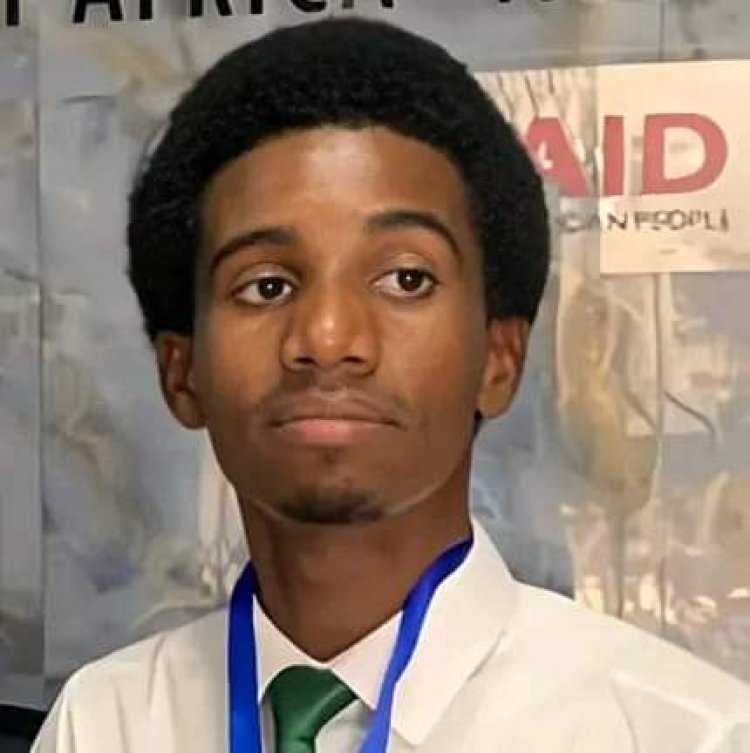I Cease To Be When Fulfulde Ceases To Be: The Role of Poetry in Preserving and Promoting the Fulfulde Language as Well as Saving the Fulɓe Nation

(A speech Delivered by Abdulbaki Ahmad During the Cross-Country Celebration of Poetry at Gombe State University)
Protocols
“Language is a carrier of a people's culture; culture is a carrier of a people's values; values are the basis of a people's self-definition.” — Ngugi Wa Thiongo
Some weeks back, a friend here in Gombe asked me a question that's at the core of my life and of this very poetry reading session we are having here: “Why do you care so much about Fulfulde? Is language not about communication? And don't you have other languages you're already using to communicate apart from Fulfulde? What does it change if Fulfulde ceases to be?" My response was simple and direct: “I cease to be when Fulfulde ceases to be.” I could sense his attempt to grasp my response, and I could see, through his protracted silence, how the response was not making much sense to him—as it might not be making to some of you listening to me right now. But then, that's exactly how it is.
What many of us don't realize is that language is not just a bundle of words tied by some grammatical and syntactic rules. It's way beyond that. A language is an entire civilization of its own. It's a thought process of its own. It's a distinct lens through which we get to view the world and see it in a different and distinct light. When you switch from speaking, say, English to Fulfulde, you're not only switching tongues. Rather, you're switching the whole framework through which you make sense of the world. You're switching the template and the inherent context through which you define the parameters that make up the equation of this world, and of your existence.
So, to reiterate—and to also expand on—what I told my friend, this “me” standing before you automatically ceases to be with the cessation of Fulfulde. The disappearance of Fulfulde means the disappearance of (a part of) my essence and being; of an important ingredient that makes up the recipe of my existence. Its disappearance means the disappearance of a uniqueness that makes me “me”; a uniqueness that helps me add to the diversity that makes nature the beautiful thing it is. By losing the language, I cut myself from myself. I undress my God-given body and wear a foreign one. I cut myself from the historical cord that defines why I am where I am. I inject myself with a dose of cultural amnesia. I become someone else. I cease to be.
And this is the case for all of us. Whether we know it. Whether we don't. Whether we want to know it. Whether we don't want to.
If we come to understand this, the question shifts from the realm of the “why” to that of the “how” and of the “what”. That is, the question ceases to be whether we should preserve and promote Fulfulde or not. We simply MUST. The question becomes “how” do we achieve that and “what” do we need in order to achieve it.
Let's start with the need. Through the many encounters I've had with people here in Gombe and elsewhere, and the hours of meditation I spent reflecting on this, I think what Fulfulde acutely needs at this stage is rebranding. And here's why. People still speak Fulfulde. I have experimented with speaking to as many people as I could here in Gombe in Fulfulde and I've always hit the bull's eye. (I think it was only on one occasion that I spoke to a person I perceived as Pullo, and he replied that he couldn't speak it). What does this entail? That Fulfulde is still alive and strong. That we have a strong starting point. That's from the positive side.
On the other hand, Fulfulde is at the risk of becoming (if not already) a moribund language—a language no longer being passed to children as their native tongue. And this status is a very dangerous one for a language to wear. For, as K. David Harrison observed in his book, “When Languages Die: The Extinction of the World's Languages and the Erosion of Human Knowledge,” the days of such a language are numbered, “as speakers grow elderly and die, and no new speakers appear to take their places.” This is what Fulfulde is going through in the Northwest, where I am from, and if something is not done, it will replicate itself here in the NE.
From what I've heard and from my own personal experience, most Fulɓe are—and I will be brutally honest here—ashamed of speaking the language. Yes. “Ashamed” is the word. They feel it is a language of yimɓe ladde, and something below the level of yimɓe fintuɓe like them. Now, call it inferiority complex or whatever, but it is what it is. What we need to do is not deny this reality. What we need to do is to accept it and deal with it. Simple. Why do they even feel that? Because, as I said in one Facebook post of mine, we have relegated the tongue to the confines of our homes and ladde. We have equated fintuki with ditching the language, and we measure the intellectual girth of our children by their ability to speak anything but Fulfulde. Our educated, our religious scholars, our writers, our politicians & our technocrats have all kept it aside.
So again, rebranding. We need to rebrand the language for our sakiraaɓe to feel it is “vogue” enough to be spoken at the peak of their own definition of what's vogue. How are we supposed to approach this rebranding task? The answer is in what we are doing right here and now. Poetry, in particular, and literature, in general, are one of the fail-proof ways to bring Fulfulde out of its present quagmire. Here's how. First, it brings the language out of the confines of our homes and making it central to our intellectual and literary pursuits. Second, it raises the prestige of Fulfulde through the prestige of the young and creative minds that will be engaging it through their poems—which, in turn, would bring many out of their shells to embrace it and speak it with elegance and grace. This is not to mention literature's importance in teaching the four abilities to listen, speak, read, and write in the language.
This is one motive behind this poetry reading we are having today. This is one motive behind our coming together here. It is to both celebrate poetry and use it as a tool of language preservation. Of language promotion.
Sakiraaɓe, I would leave us all with the challenge our brother, the late Ibrahim MoAllahyidi U. Boyi, left us with. Let us write poetry in Fulfulde. Let us write novels and our (auto)biographies in it. Let us use it in our mosques and markets. Let us woo our girlfriends in and with it. Let us not forsake it. For, its cessation means our cessation. Losing it means losing the link to our past. And to our future. Losing it means losing ourselves.
We can't afford that!


















































